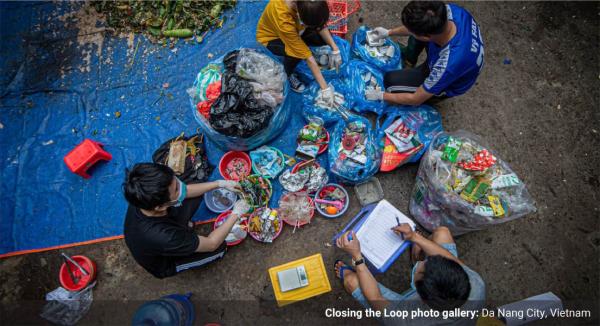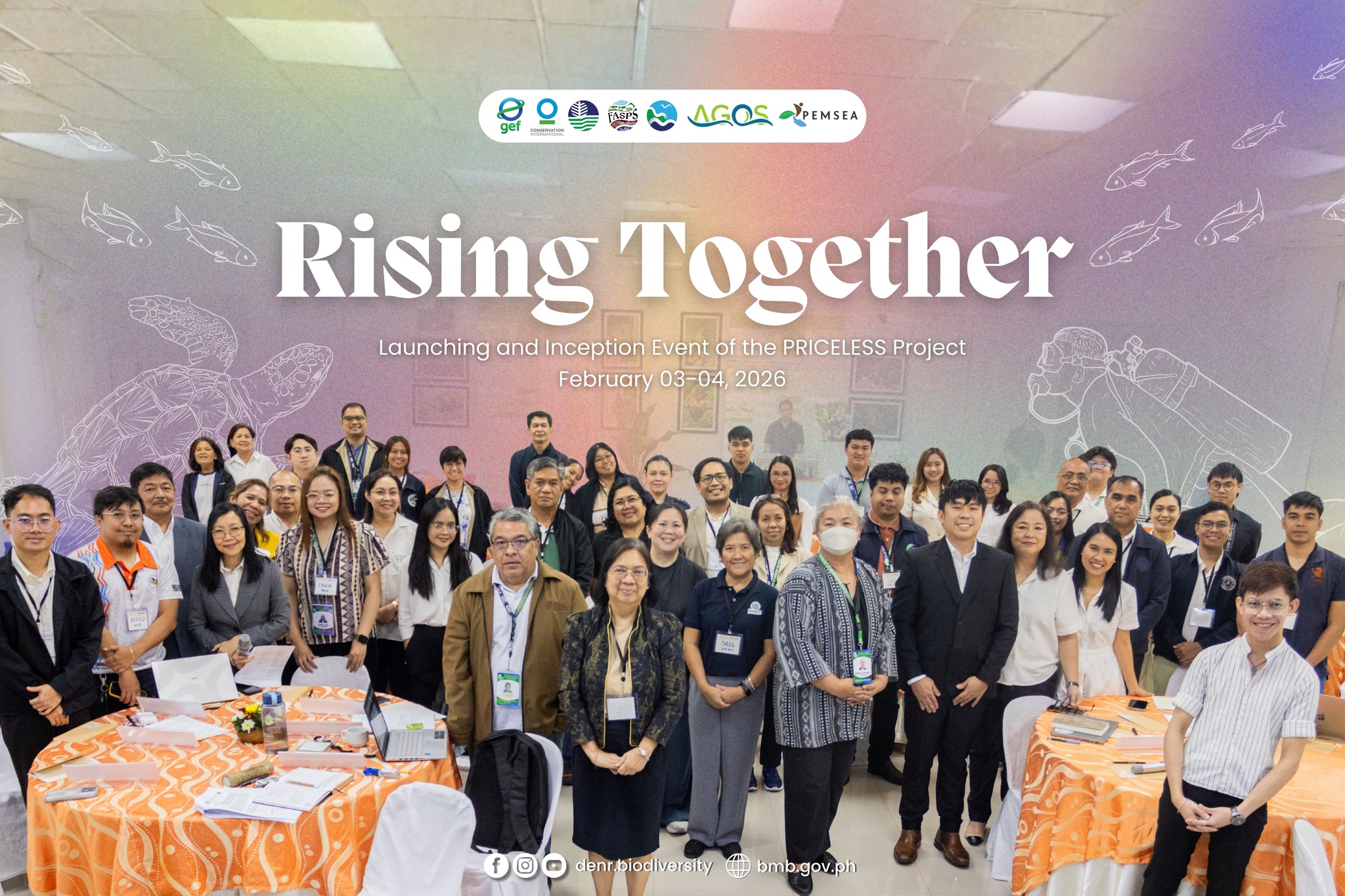UN ESCAP, Plymouth Marine Laboratory, PEMSEA share innovative approaches to evidence-based plastic pollution prevention
Thursday, 26 August 2021

Over 60 percent of global plastic pollution in the marine environment have been attributed to come from South East Asia, where cities are expanding, economies are growing, and urban waste management systems are struggling to keep up. The United Nations Economic and Social Commission for Asia and the Pacific (UN ESCAP), is spearheading an initiative towards reducing the environmental impacts in ASEAN cities through “Closing the Loop (CTL)”, a project addressing plastic waste pollution and leakage into the marine environment.
The CTL Project is supported by the Government of Japan and works with several Japanese organizations such as the Institute for Global Studies (IGES), to realize the Osaka Blue Ocean Vision—which aims to bring marine plastic litter to zero by 2050.
On August 5, 2021, UNESCAP, Plymouth Marine Laboratory (PML), Partnerships in Environmental Management for the Seas of East Asia (PEMSEA), IGES, University of Wageningen (WUR) in the Netherlands, and Viet Nam National University (VNU) launched “Measure! Monitor! Manage! Innovative approaches to evidence-based plastic pollution prevention,” an online learning collab that examined the process of tracking plastic pollution in cities and the ocean with real-world applications, live demonstrations and a roundtable session.
The Closing the Loop approach seeks to understand how cities near the ocean can reduce their plastic pollution. It centers around the themes of: measure and monitor through innovative and smart technologies, and with this information manage through policy and investment strategies. In project areas, this is actualized by creating a baseline assessment for measurement; implementing a digital mapping tool to enhance monitoring; and creating city action plans to guide management.
To date, this process has been implemented in four countries: Kuala Lumpur (Malaysia), Da Nang (Viet Nam), Surabaya (Indonesia), and Nakhon Si Thammarat (Thailand). A free eLearning course: Cities and Marine Plastic Pollution: Building a Circular Economy, has also been developed to help build capacity in local governments.
Measure! Monitor! Manage! to address plastic pollution
To measure means creating the baseline assessment. This is an intensive and involved process, and is not intended to be repeated annually. It involves a geographical assessment of the path of plastic and potential leakage points, and an assessment of existing recycling, plastic pollution prevention efforts, and national goals.
The digital mapping tool developed for monitoring integrates satellite data, sensor data, and crowdsourcing. Machine learning is used to identify plastic debris, and the resulting data can produce a clear picture of local plastic hotspots. This all feeds into a plastic pollution calculator, which finds that in Da Nang, Viet Nam, for example, 1.3% of plastic waste becomes marine debris. Of this amount, 56.9% are plastic bags. The composition of plastic that becomes marine waste is different than overall plastic composition, due to differences in recyclability and other end-of-life treatments.
To manage plastic pollution, developing a City Action Plan requires identifying appropriate policy intervention priorities, specific action plans, and investment strategies. Not only do physical processes such as waste collection need funding and planning, but should also include capacity building and training for local officials. As part of Closing the Loop, an eLearning course (https://www.unescap.org/projects/ctl/elearning) has been developed to help build this capacity.
This open-source, eLearning course by UN ESCAP is available for free, requiring only a laptop with internet connection. While targeted for use by local government officials, it is also available for the general public. The seven-module, 15-hour course is designed to facilitate city-level local government capacity building for the measurement and management of plastic pollution from land-based sources.
Through the Closing the Loop Project, cities should be able to establish data-driven policy making at the local levels. Viet Nam, Indonesia, Malaysia, and Thailand have already developed national plans to which city-level plans could contribute, and the Philippines is in the advanced stage of preparing one. It is hoped that more cities will be able to adapt the processes and tools created through the Closing the Loop project, providing local actions to tackle the global crisis around marine plastic pollution.
“Measure! Monitor! Manage!” is one of the pre-2021 East Asian Seas Congress “collabs” organized by PEMSEA and/or partners, and other organizations. The 2021 East Asian Seas Congress will be held virtually on December 1-2, 2021, and hosted by the Royal Government of Cambodia. For more information, visit the EAS Congress 2021 website at https://dev-pemseaorg.pantheonsite.io/node/91.
A recording of the session can be viewed here: https://www.youtube.com/watch?v=2owz8HT2xhw.
MEDIA CONTACT:
(Ms) Reggie U. Olalia
PEMSEA Communications Specialist
Email: rolalia@pemsea.org
(63-2) 0917-9028121




